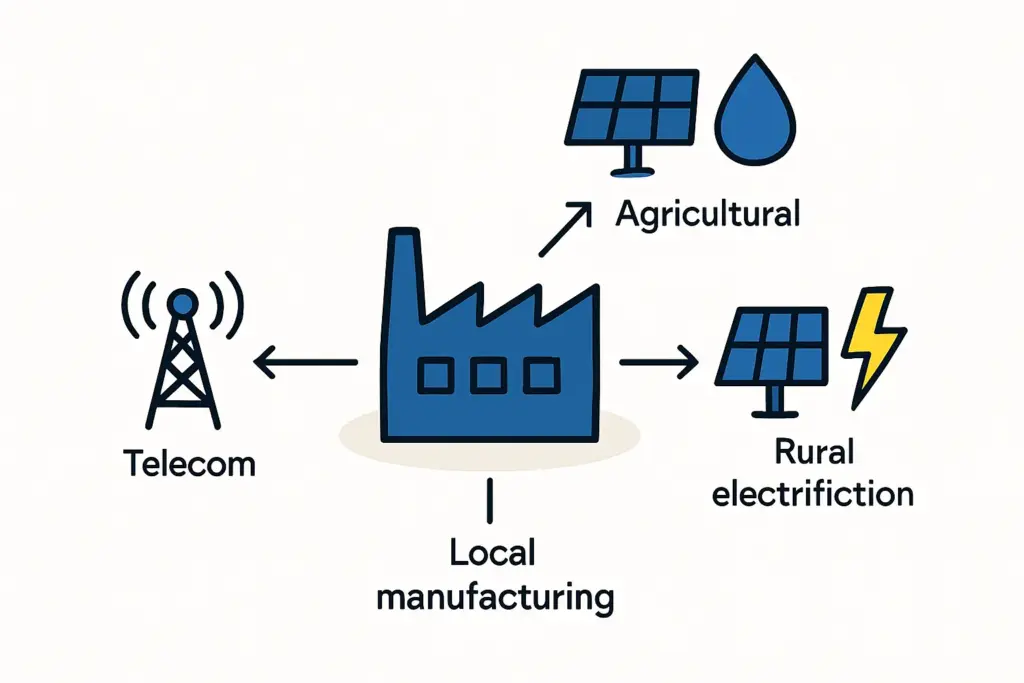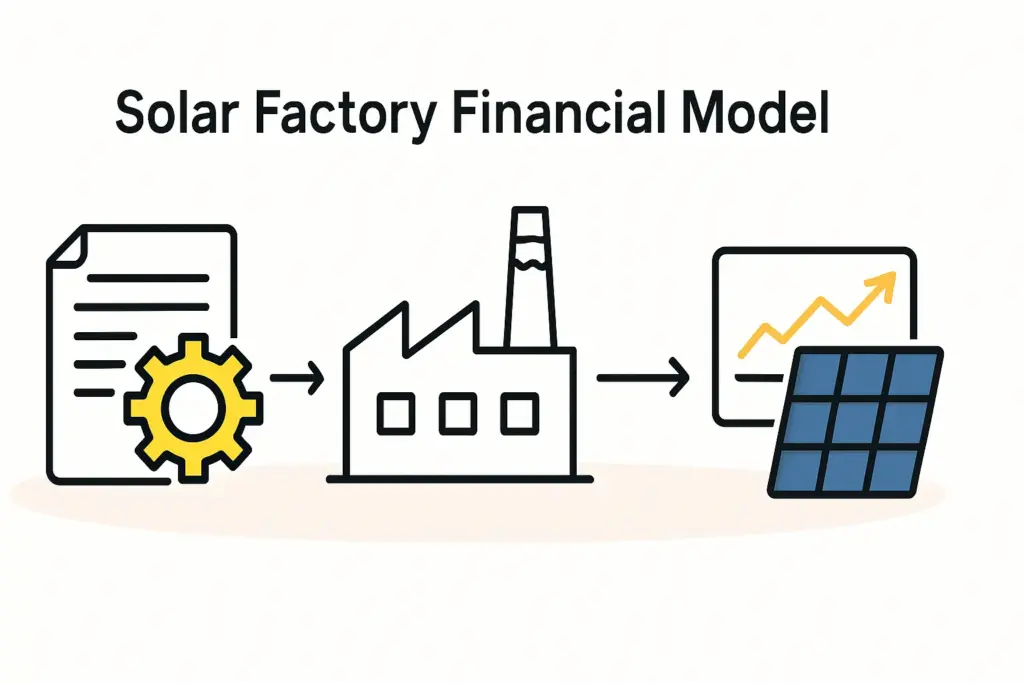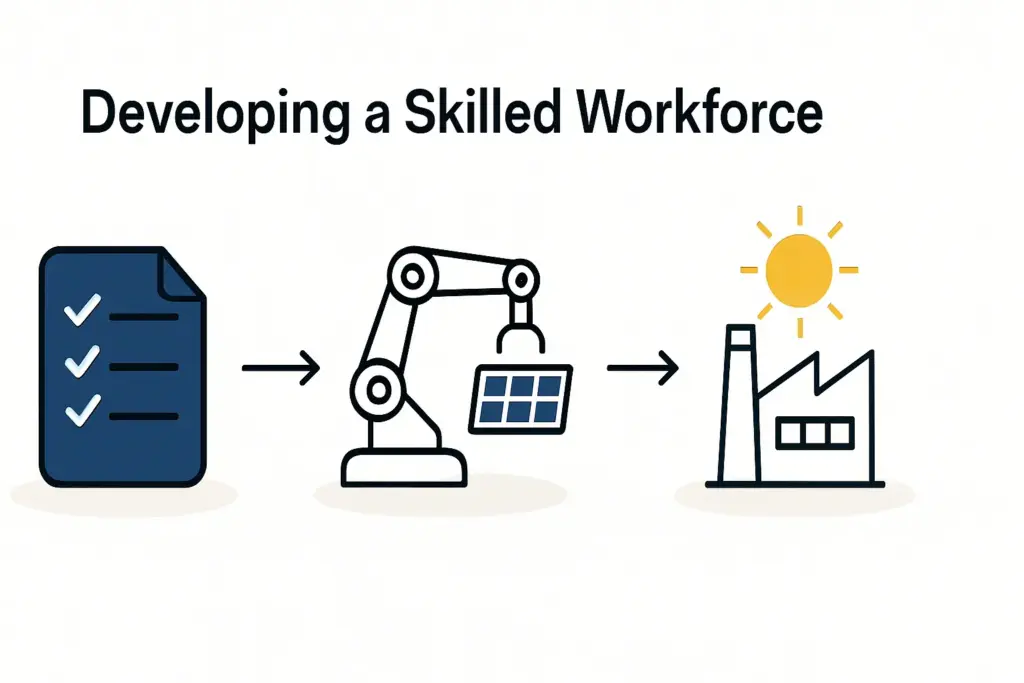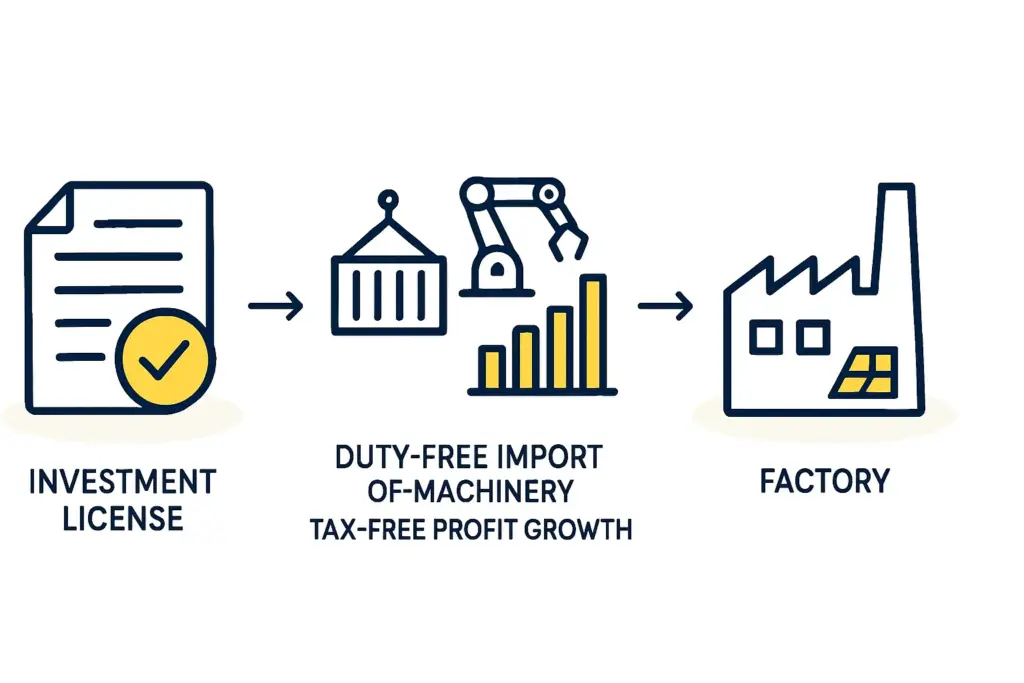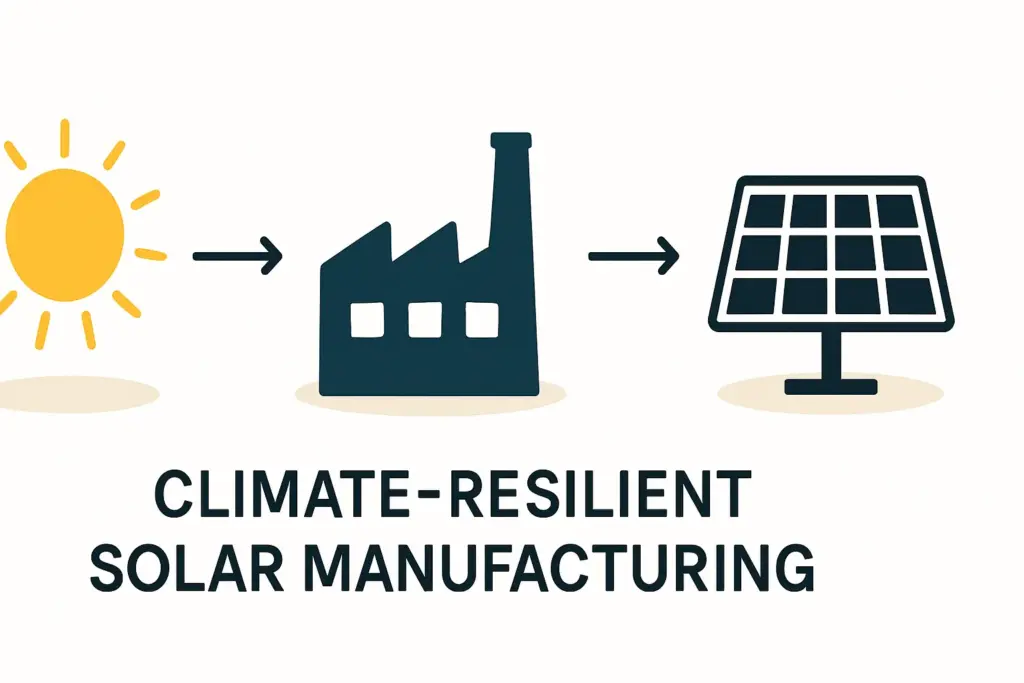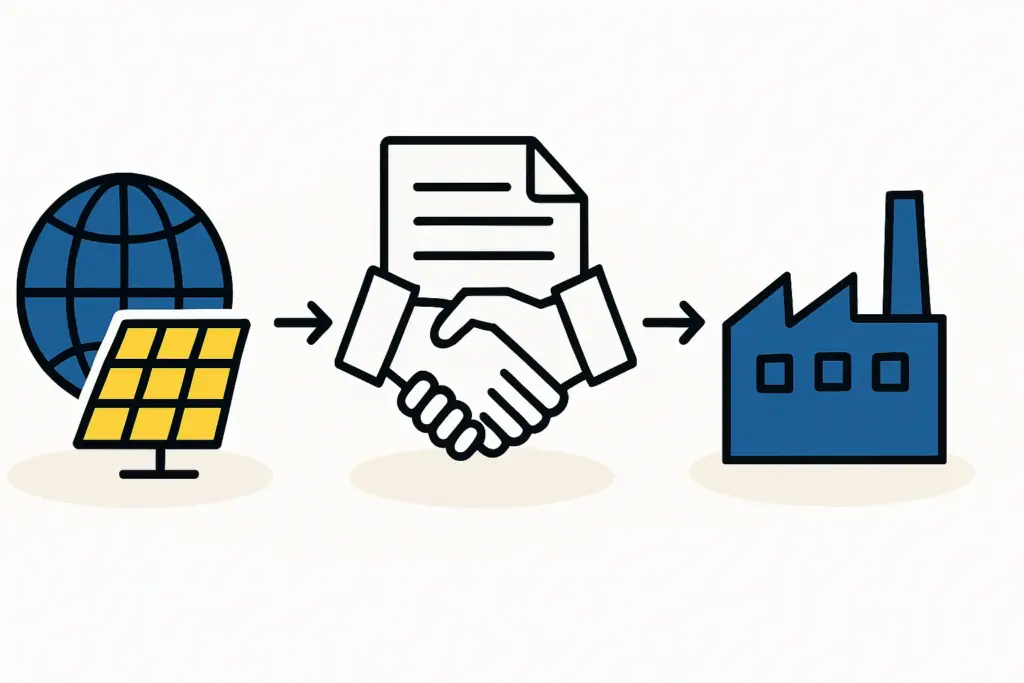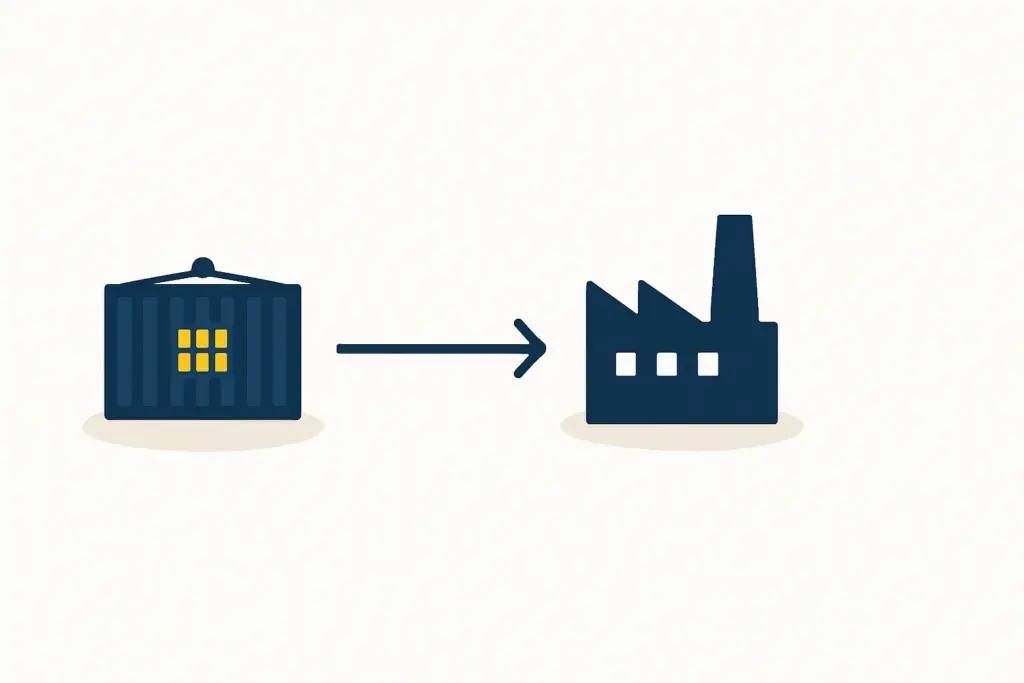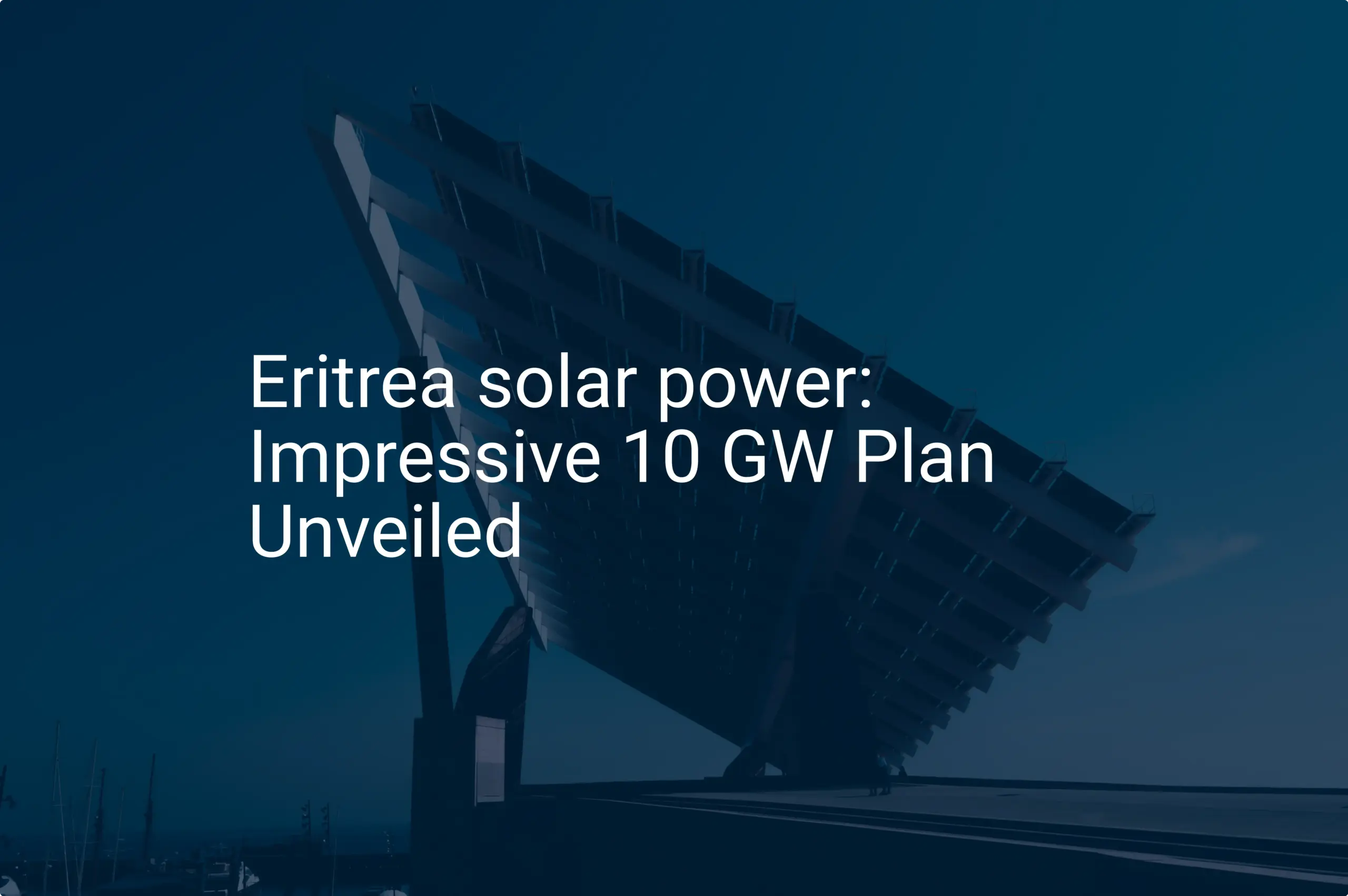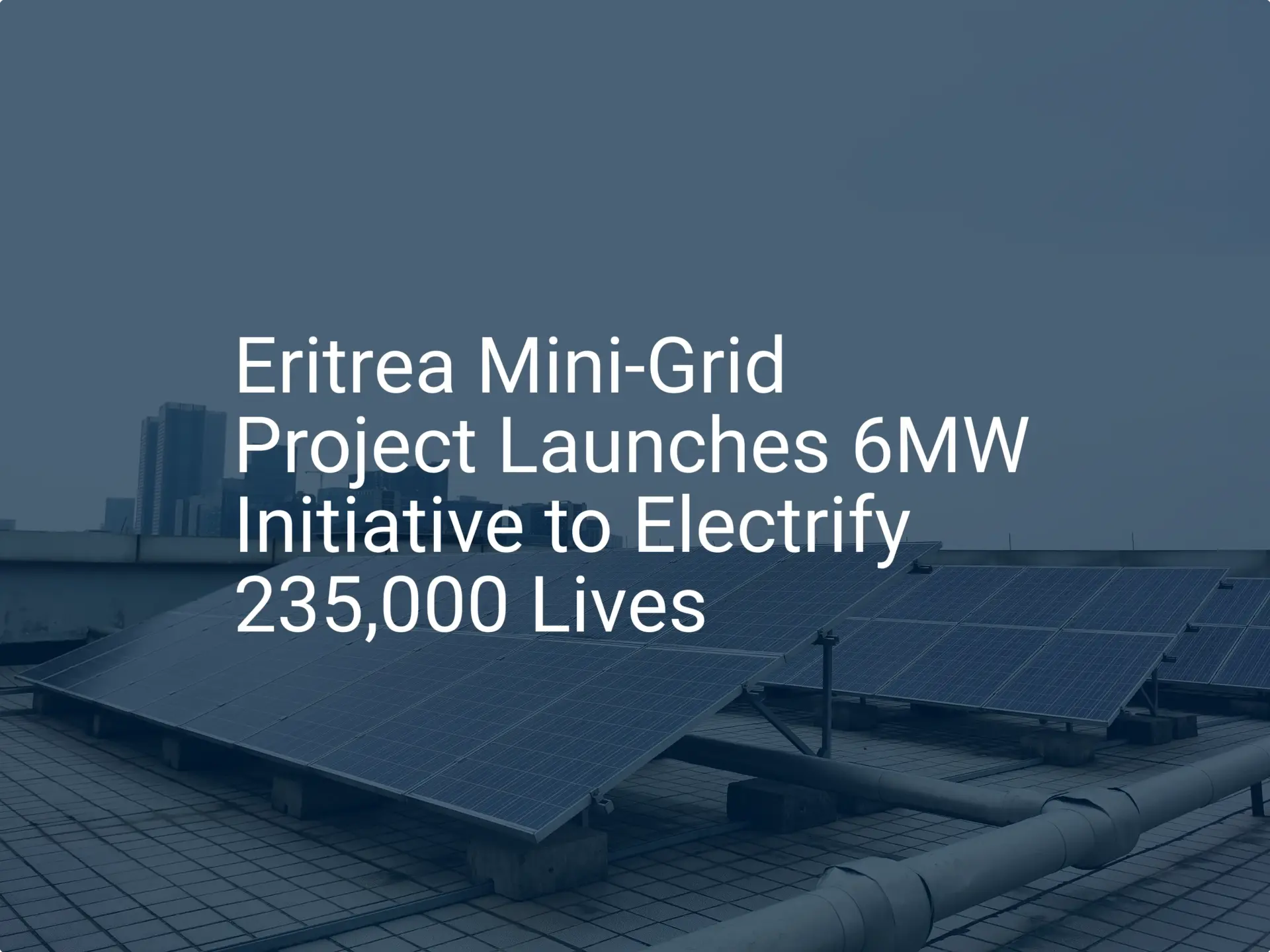Discover comprehensive insights into the statistics, market trends, and growth potential surrounding the solar panel manufacturing industry in Eritrea
- Climate.top (n.d.). Sunshine & Daylight Hours in in Asmara, Eritrea. Retrieved August 10, 2024, from https://www.climate.top/eritrea/asmara/sunlight
- International Renewable Energy Agency IRENA (2024, July 31). Energy profile Eritrea. Retrieved August 10, 2024, from https://www.irena.org/IRENADocuments/Statistical_Profiles/Africa/Eritrea_Africa_RE_SP.pdf
- Global climatescope (2023). Eritrea. Retrieved August 10, 2024, from https://www.global-climatescope.org/markets/er
- NTI Index (2023). Eritrea. Retrieved August 10, 2024, from https://www.ntiindex.org/wp-content/uploads/2023/07/Eritrea.pdf
- African Energy Commission (n.d.). Eritrea. Retrieved August 10, 2024, from https://au-afrec.org/eritrea
- PV magazine (2023, April 11). Eritrea secures $50 million for 30 MW solar plant with 30 MWh of storage. Retrieved August 10, 2024, from https://www.pv-magazine.com/2023/04/11/eritrea-secures-50-million-for-30-mw-solar-plant-with-30-mwh-of-storage
- International Energy Agency (2021). Eritrea. Retrieved August 10, 2024, from https://www.iea.org/countries/eritrea/electricity
- Energy Storage News (2109, March 27). Tesla batteries reach Eritrean villages in SolarCentury’s minigrids. Retrieved August 10, 2024, from https://www.energy-storage.news/tesla-batteries-reach-eritrean-villages-in-solarcenturys-minigrids/
- Solar quarter (2024, March 13). China Energy Group Wins Contract For 30 MW Solar PV Plant in Eritrea. Retrieved August 10, 2024, from https://solarquarter.com/2024/03/13/china-energy-group-wins-contract-for-30-mw-solar-pv-plant-in-eritrea
- UNDP Climate Promise (2021, December 20). Renewable energy Eritrea’s best bet to a resilient future. Retrieved August 10, 2024, from https://climatepromise.undp.org/news-and-stories/renewable-energy-eritreas-best-bet-resilient-future
- Eritrean press – Facebook (2018, September 5). Solar Powered Mini-Grids to Light up Areza and Maidma in September. Retrieved August 10, 2024, from https://www.facebook.com/photo.php?fbid=871075326418396&id=218987881627147&set=a.219856768206925
- African Development Bank Group (2022, September 12). Eritrea – Dekemhare 25 Mw Solar PV (Desert-To-Power) Project – P-ER-FA0-001. Retrieved August 10, 2024, from https://www.afdb.org/en/documents/eritrea-dekemhare-25-mw-solar-pv-desert-power-project-p-er-fa0-001
- World salaries (2024). Average Salary in Eritrea for 2024. Retrieved August 10, 2024, from https://worldsalaries.com/average-salary-in-eritrea/
- World salaries (2024). Average Solar Engineer Salary in Eritrea for 2024. Retrieved August 10, 2024, from https://worldsalaries.com/average-solar-engineer-salary-in-eritrea/
- World salaries (2024). Average Solar Photovoltaic Installer Salary in Eritrea for 2024. Retrieved August 10, 2024, from https://worldsalaries.com/average-solar-photovoltaic-installer-salary-in-eritrea/
- Worldometers (n.d.). Eritrea Population. Retrieved August 10, 2024, from https://www.worldometers.info/world-population/eritrea-population/
- African land (n.d.). Discover the best farmland for sale in Eritrea with African land. Retrieved August 10, 2024, from https://african.land/blog/article/discover-the-best-farmland-for-sale-in-eritrea-with-african-land-b740
- The Borgen Project (2020, September 1). How does Eritrea’s lack of clean water affect its poverty issue? Retrieved August 10, 2024, from https://borgenproject.org/eritreas-lack-of-clean-water/
- Unicef (2020, November 8). Eritrea commits to providing access to clean water and sanitation for all. Retrieved August 10, 2024, from https://www.unicef.org/esa/stories/eritrea-commits-providing-access-clean-water-and-sanitation-all
- Hivoox (n.d.). Business premises in Eritrea. Retrieved August 10, 2024, from https://hivoox.com/en/business-premises-in-eritrea.html
- African Reinsurance corporation (2021). Country Dashboards – Eritrea. Retrieved August 10, 2024, from https://www.africa-re.com/dashboards/ER
- BTI Transformation index (2024). Eritrea Country Report 2024. Retrieved August 10, 2024, from https://bti-project.org/en/reports/country-report/ERI#pos15
- Regulatory Indicators for sustainable energy RISE (n.d.). Eritrea. Retrieved August 10, 2024, from https://rise.esmap.org/country/eritrea
- National Indicative Program (NIP) (2015, October 26). Eritrea – EU Cooperation. Retrieved August 10, 2024, from https://www.gtai.de/resource/blob/27950/67d6e3515d3b5104439a706bf74e4eef/pro201602035012-data.pdf
- Climatoscope (2023). Eritrea. Retrieved August 10, 2024, from https://www.global-climatescope.org/markets/er/
- PV Magazine (2023, April). Eritrea launches tender for 30 MW solar plant. Retrieved August 10, 2024, from https://www.pv-magazine.com/2023/08/24/eritrea-launches-tender-for-30-mw-solar-plant/
- ESI Africa (2024, March 15). The first solar energy and storage system gets off the ground in Eritrea. Retrieved August 10, 2024 from https://www.esi-africa.com/renewable-energy/solar/first-solar-energy-and-storage-system-gets-off-the-ground-in-eritrea
- Research gate (2022, May). Estimating Solar Energy Potential in Eritrea: a GIS-based Approach. Retrieved August 10, 2024 from (PDF) Estimating Solar Energy Potential in Eritrea: a GIS-based Approach (researchgate.net)
- Eritrea Ministry of Information (2017, December 12). Adi-Halo: 2 MW solar-power plant put in place. Retrieved August 10, 2024 https://shabait.com/2017/12/12/adi-halo-2-mw-solar-power-plant-put-in-place/





